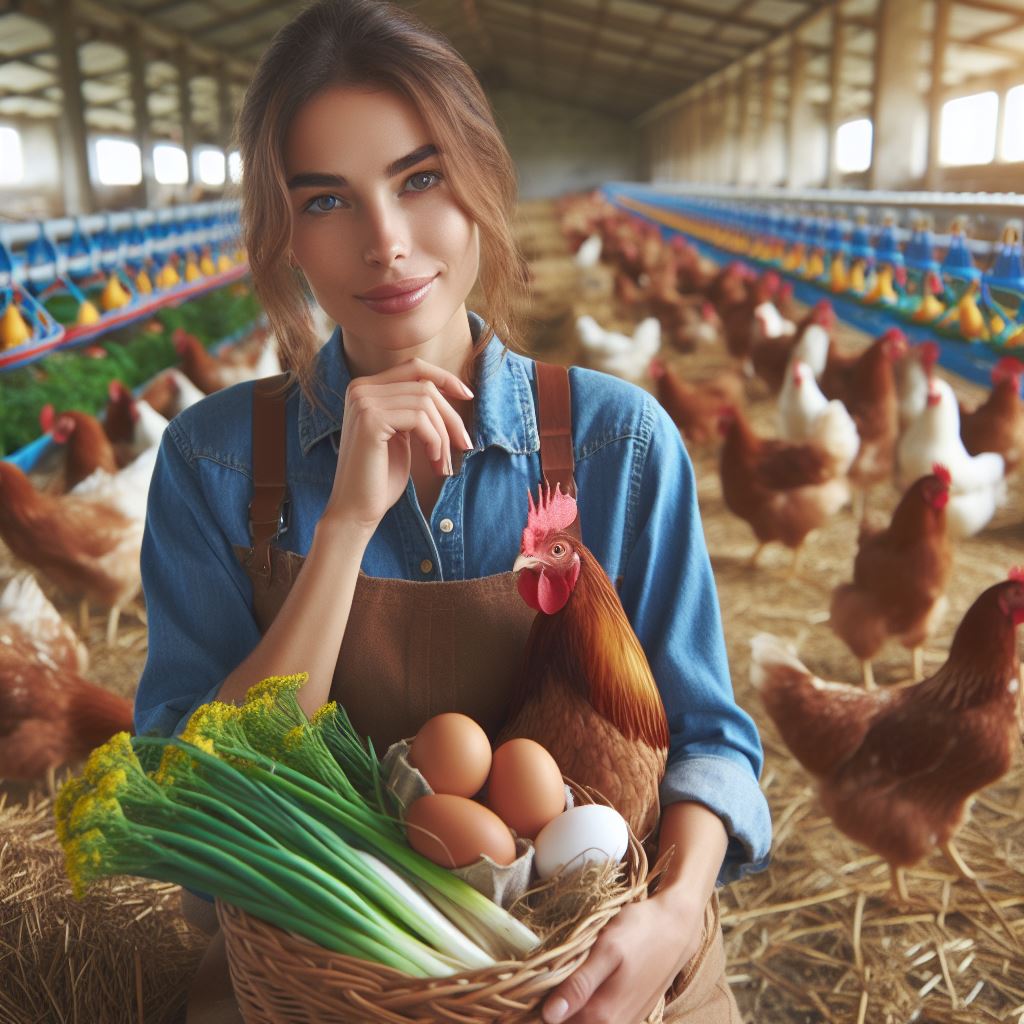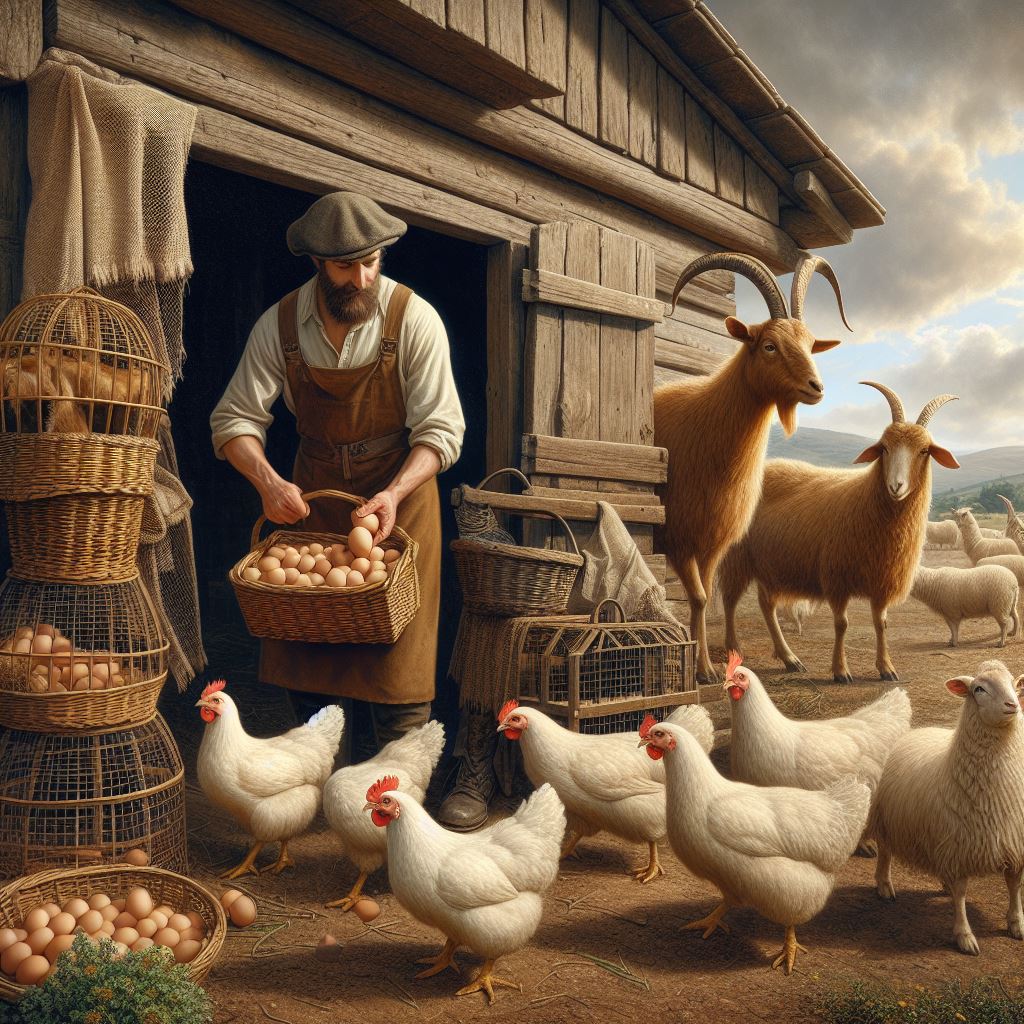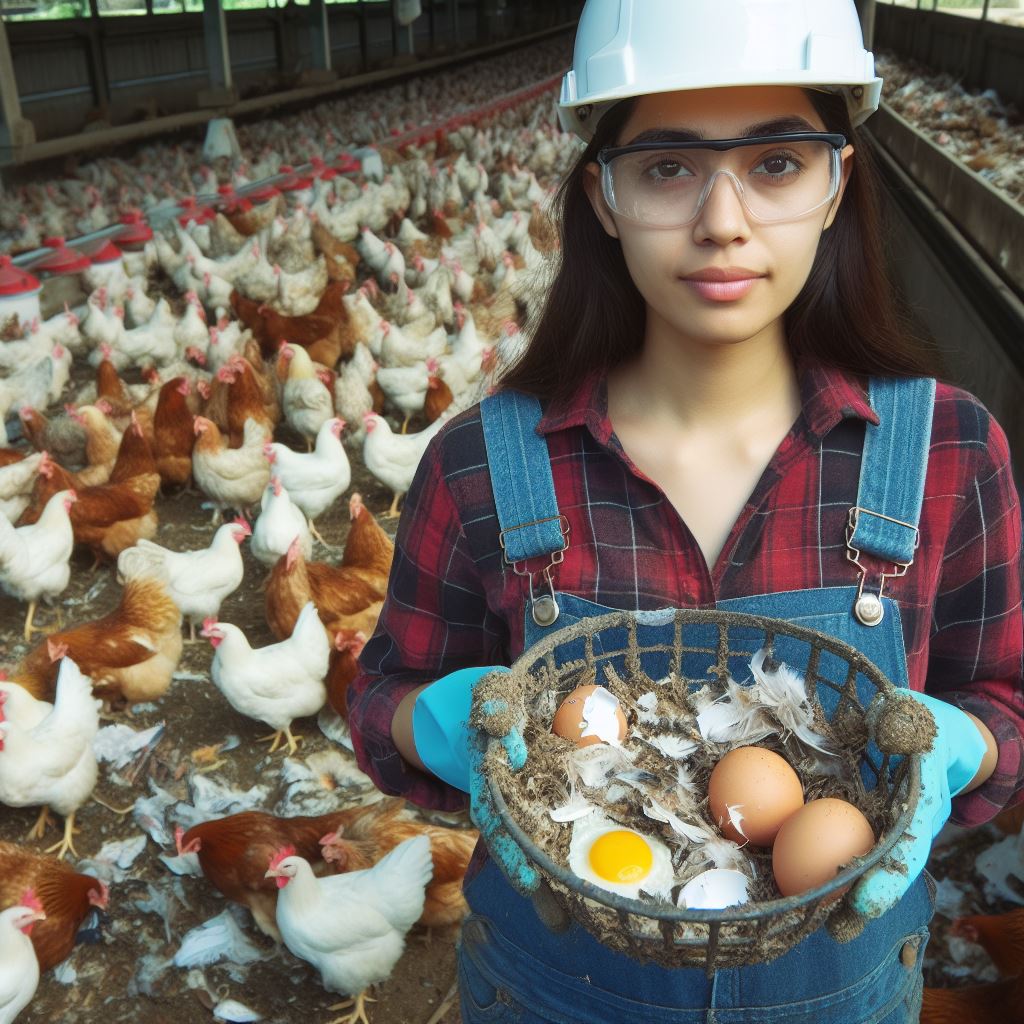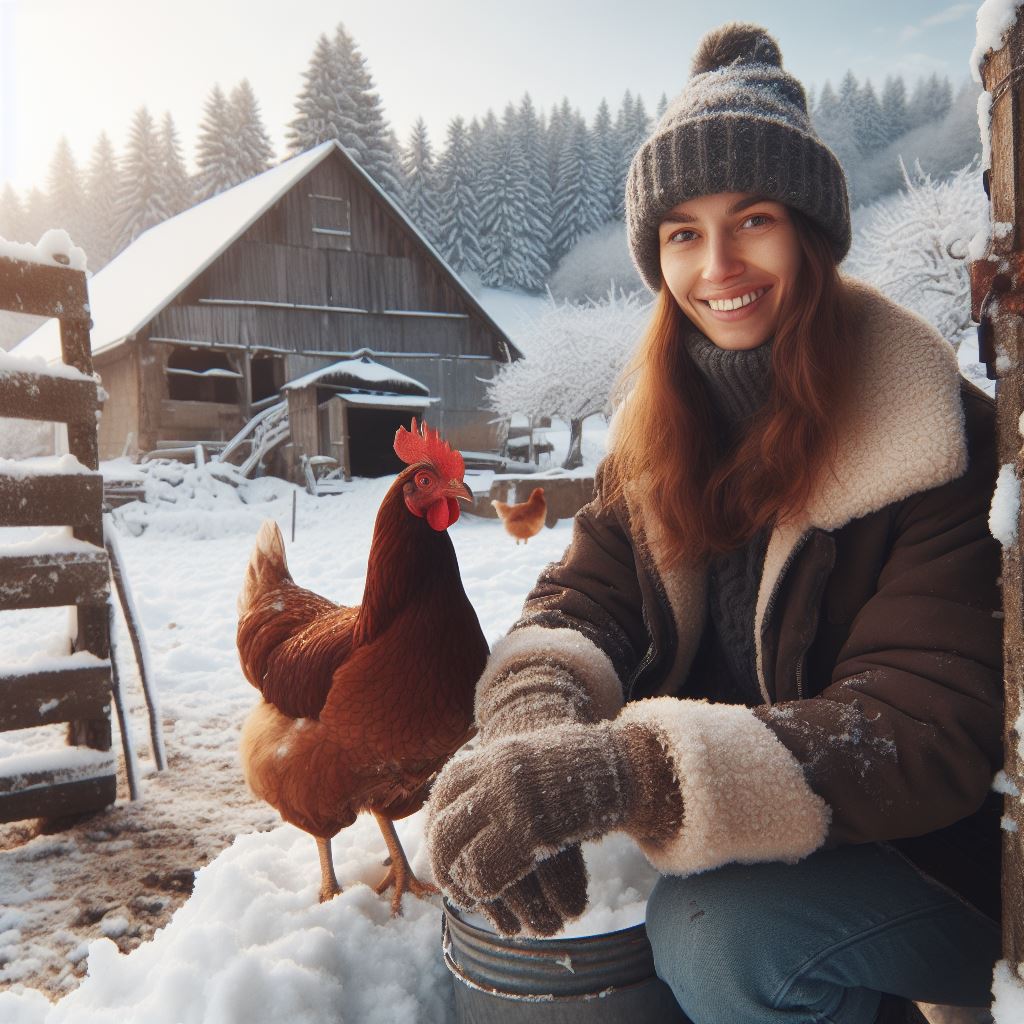Introduction
Raising ducks as an alternative to chickens
Are you tired of the same old routine of raising chickens?
Looking for a new and exciting option to add to your backyard farm?
Well, look no further! Raising ducks can be a fantastic alternative to raising chickens, offering a plethora of benefits and advantages that you may not have considered before.
Benefits and advantages of raising ducks
First and foremost, ducks are great for pest control.
Unlike chickens, ducks love hunting down insects, slugs, and even small rodents.
They will happily munch away on your garden pests, keeping your plants healthy and thriving without the need for harmful pesticides.
Another advantage of raising ducks is their adaptability to various environments.
Unlike chickens, ducks can tolerate both wet and dry climates, making them suitable for farms in different regions.
This adaptability also makes them less prone to diseases, further reducing the risk of illness in your flock.
Additionally, ducks are efficient egg-layers. While they may not produce eggs as frequently as chickens, they lay larger and richer eggs with incredibly flavorful yolks.
You’ll never be disappointed with your breakfast when you have a flock of healthy ducks providing you with these delicious eggs.
Lastly, raising ducks can be a fun and rewarding experience.
Their amusing behaviors, such as their love for swimming or the way they waddle around, can bring endless entertainment and joy to your farm.
Not to mention, they make adorable pets for both children and adults alike.
In essence, if you’re looking to shake things up in your poultry-raising endeavors, raising ducks is a brilliant alternative to raising chickens.
Transform Your Agribusiness
Unlock your farm's potential with expert advice tailored to your needs. Get actionable steps that drive real results.
Get StartedWith their pest control abilities, adaptability, superior egg-laying, and overall charm, ducks are sure to bring new life and excitement to your farm.
So why wait? It’s time to take the quack-tastic leap into the world of duck raising!
Differences between Ducks and Chickens
Having a backyard flock can be a wonderful experience, providing fresh eggs and entertainment for your family.
While chickens are the most common choice for backyard poultry, ducks can be a fascinating and alternative option.
If you are considering raising ducks instead of chickens, it is important to understand the major differences between these two poultry species.
Physical appearance and characteristics
One of the most noticeable distinctions between ducks and chickens is their physical appearance and characteristics.
Ducks typically have a more rounded body shape with webbed feet, while chickens have a more slender body and scaled feet.
Additionally, ducks have a flat bill, which is different from the pointed beak of chickens.
These physical differences give ducks a unique and attractive look.
Lifespan and growth rate
Another important distinction is the lifespan and growth rate of ducks compared to chickens.
Ducks generally live longer than chickens, with some breeds capable of living up to 10 years.
On the other hand, chickens have a shorter lifespan, usually living for about 5 to 8 years.
This difference in lifespan may be a consideration when choosing between ducks and chickens for your backyard flock.
Behavior and temperament
Behavior and temperament also vary between ducks and chickens. Ducks are known to be more social and gregarious animals.
They enjoy swimming and can even be trained to follow commands. Chickens, on the other hand, tend to be more independent and prefer to stay on land.
Understanding the behavior and temperament of these birds can help you choose the right fit for your backyard setup.
Dietary preferences and nutritional needs
Furthermore, ducks and chickens have different dietary preferences and nutritional needs.
Ducks are omnivorous and consume a wider range of foods, including insects, aquatic plants, and grains. Their diet reflects their nature as waterfowl.
Chickens, on the other hand, are primarily herbivores, consuming mainly grains and seeds.
It is important to provide the appropriate feed for each species to ensure their specific nutritional requirements are met.
In general, there are significant differences between ducks and chickens that should be taken into consideration when deciding which species to raise in your backyard.
The physical appearance, lifespan, behavior, and dietary preferences all play a role in determining which type of poultry is best suited for your needs and preferences.
Whether you choose to raise ducks or chickens, both can bring joy and satisfaction to your backyard flock.
Read: Robotics in Poultry Farming: The Future Is Here
Showcase Your Farming Business
Publish your professional farming services profile on our blog for a one-time fee of $200 and reach a dedicated audience of farmers and agribusiness owners.
Publish Your ProfileDucks as Egg Producers
The egg-laying capabilities of ducks
Duck eggs have a richer taste and higher nutritional value compared to chicken eggs.
Ducks have the potential to lay eggs year-round, unlike chickens who often take breaks.
Some duck breeds are specifically bred for their egg-laying abilities, making them excellent producers.
Read: Innovative Poultry Housing Solutions in 2024
Duck Meat and Culinary Considerations
The culinary benefits of raising ducks for meat
Comparing to chicken, duck meat offers a unique flavor and a rich, tender texture.
With its rich flavor, duck meat can be a versatile ingredient for various types of cooking.
The differences in raising ducks for meat compared to chickens
Raising ducks for meat requires less space as they don’t need large pastures or roaming areas.
Ducks have a higher feed conversion rate, making them more efficient in converting food to meat.
Additionally, ducks are hardier and more resistant to diseases compared to chickens.
Popular duck breeds for meat production
When it comes to raising ducks for meat production, several breeds are highly recommended:
- Pekin Ducks: This breed is the most popular choice for meat production, known for its tender, flavorful meat.
- Rouen Ducks: Rouen ducks are larger in size and offer a gamey, succulent meat.
- Muscovy Ducks: Muscovy ducks have lean and dark meat, often described as similar to beef.
- Khaki Campbell Ducks: These ducks are small in size but make up for it with their lean, flavorful meat.
- Runner Ducks: Runner ducks have a mild, delicate flavor, making them ideal for various recipes.
Read: Starting a Poultry Farm: Essential Steps & Tips
Pest and Weed Control
Natural pest and weed control abilities of ducks.
sing ducks as a natural pest and weed control strategy offers several advantages over conventional methods.
Ducks possess innate foraging skills, making them effective in controlling pests and weeds.
Instead of relying on chemical pesticides and herbicides, which can harm the environment and human health, ducks provide an organic and sustainable solution for farms and gardens.
Specific pests and weeds that ducks can help manage.
Ducks’ ability to control pests stems from their diet.
They are particularly skilled at catching insects, such as mosquitoes, flies, and various garden pests.
A flock of ducks in a garden or field can significantly reduce the populations of these unwanted critters.
Their constant pecking and dabbling behavior also contributes to pest management by keeping insect populations in check.
Moreover, ducks offer valuable assistance in weed control. They have a taste for various weed species, including dandelions and chickweed.
By allowing ducks to roam freely in an area prone to weed growth, farmers can rely on them to naturally eliminate these undesirable plants.
This not only reduces the need for herbicides but also helps maintain a visually appealing and weed-free landscape.
Benefits of using ducks for organic and sustainable farming practices.
Integrating ducks into farming practices brings numerous benefits for organic and sustainable agriculture.
Unlike chemical alternatives, ducks provide a non-toxic solution to pest control.
By minimizing pesticide usage, farmers can protect the environment, water sources, and beneficial insects like bees.
Ducks also aid in maintaining soil health by reducing weed growth.
This decreases the reliance on herbicides, which can have detrimental effects on soil fertility and microorganisms.
Additionally, ducks contribute to soil enrichment through their droppings.
Duck manure is rich in essential nutrients, such as nitrogen and phosphorus, making it an excellent natural fertilizer.
When ducks roam freely on the land, their droppings get distributed across the area, improving soil quality and promoting robust plant growth.
This natural fertilization process eliminates the need for synthetic fertilizers, thereby reducing financial costs and minimizing the risk of water pollution.
Overall, using ducks for pest and weed control aligns with the principles of organic and sustainable farming.
Their natural abilities and behaviors enable farmers to minimize the use of harmful chemicals, foster soil health, and adopt environmentally friendly practices.
Whether it’s managing pesky insects or eradicating weeds, ducks prove to be beneficial allies in maintaining a thriving and sustainable agricultural system.
Read: Poultry Health: Preventing Common Diseases
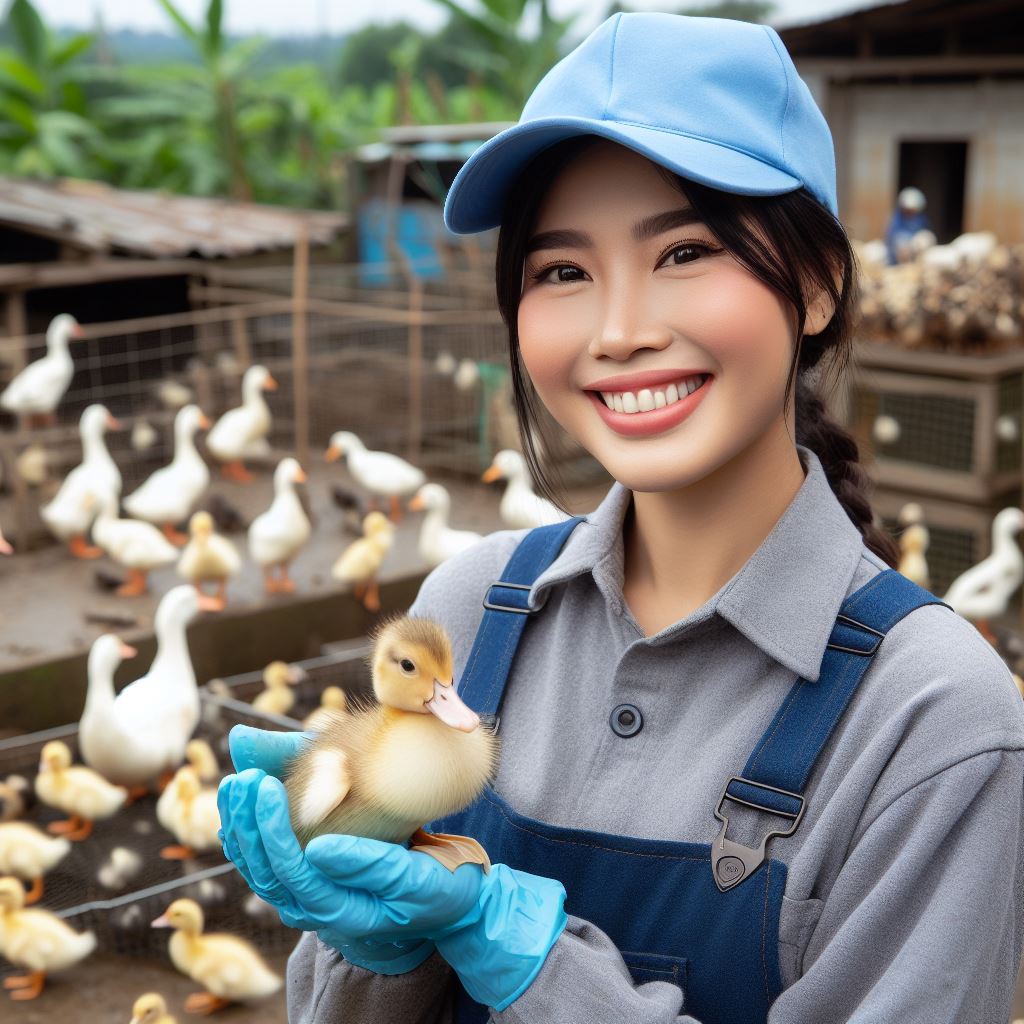
Housing and Care for Ducks
Housing Requirements for Ducks
When it comes to housing, ducks have different needs compared to chickens.
Ducks require a larger coop and more space to roam around.
They need access to water sources like ponds or pools for swimming and cleaning.
Provide a secure shelter to protect ducks from predators and harsh weather conditions.
Make sure the coop is well-ventilated to prevent the buildup of ammonia fumes.
It’s important to have a ramp or easy access to the water source for the ducks.
Showcase Your Farming Business
Publish your professional farming services profile on our blog for a one-time fee of $200 and reach a dedicated audience of farmers and agribusiness owners.
Publish Your ProfileBasic Care and Maintenance Routine for Ducks
Feeding and dietary considerations
- Feeding ducks requires a balanced diet consisting of grains, vegetables, and protein.
- Supplement their diet with duck pellets or commercial feeds designed specifically for ducks.
- Ensure fresh water is always available in a clean and accessible container for drinking.
- Make sure the water container is deep enough for ducks to submerge their heads and clean their nostrils.
- Ducks need access to grass, insects, and other natural foraging materials for their overall well-being.
- Provide grit or coarse sand for digestion as ducks swallow food whole without chewing.
Health and hygiene practices
- Clean the coop regularly to prevent the buildup of waste and to maintain good hygiene.
- Remove wet bedding and droppings, replacing it with fresh bedding as needed.
- Keep an eye out for any signs of illness such as lethargy, loss of appetite, or feather abnormalities.
- Provide necessary vaccinations and annual health check-ups for optimal duck health.
- Regularly trim the ducks’ wings to prevent them from flying away or escaping predators.
By understanding the housing and care requirements for ducks, you can provide a safe and healthy environment for these charming and enjoyable animals.
Remember that ducks have different needs than chickens, so it’s important to cater to their specific requirements.
Potential Challenges and Precautions
Potential challenges or drawbacks of raising ducks
- Require more space than chickens due to their need for swimming
- Can be messy and create muddy areas around their water source
- Produce more waste than chickens and require regular cleaning of their coop and water area
- Ducks are noisy and can disturb neighbors, particularly if you live in a residential area
- May be more difficult to find ducks and duck-specific supplies compared to chickens
Common diseases or health issues in ducks
- Avian influenza: a viral disease that can cause respiratory problems and high mortality in ducks
- Botulism: caused by bacteria in stagnant water and can lead to paralysis or death in ducks
- Aspergillosis: a fungal infection that can affect the respiratory system of ducks
- Worm infestations: ducks can contract various types of internal and external parasites
- Leg and foot problems: can be caused by poor diet, lack of exercise, or genetic factors
Tips and precautions to overcome these challenges
- Ensure adequate space for the ducks to swim and provide them with a clean and safe water source
- Use bedding like straw or wood chips to help control mud and make cleaning easier
- Regularly clean the coop and water area to prevent the buildup of waste and minimize odor
- Consider neighbors when choosing a location for your ducks and take measures to reduce noise
- Research local suppliers or consider adopting ducks from a rescue organization
- Implement biosecurity measures to prevent the spread of diseases, such as disinfecting equipment and limiting visitors
- Provide a balanced and nutritious diet for your ducks to enhance their overall health and immunity
- Keep their living area clean and dry to prevent fungal infections and regularly check for signs of parasites
- Ensure proper nutrition and exercise to prevent leg and foot problems, and consider using a duck ramp
- Monitor the health of your ducks closely and consult a veterinarian if you notice any concerning symptoms
By being aware of the potential challenges and taking necessary precautions, you can successfully raise ducks and enjoy the benefits they offer as an alternative to chickens.
Conclusion
Key points discussed in the blog post
In closing, this blog post discussed the key points of raising ducks as an alternative to chickens.
Raising ducks can be a viable alternative to chickens
It reinforced the idea that raising ducks can indeed be a viable option for farmers.
Consider the advantages of raising ducks as a viable alternative to chickens.
Ducks are hardy, excellent foragers, and can thrive in various climates.
Explore the benefits of this alternative for sustainable poultry farming.
Encouragement for readers to consider ducks as a farming option
Therefore, I encourage readers to seriously consider ducks as a farming option.
Ducks offer various benefits such as higher egg production, pest control, and superior meat quality. They are also resilient and easy to care for. So why not give them a try?

